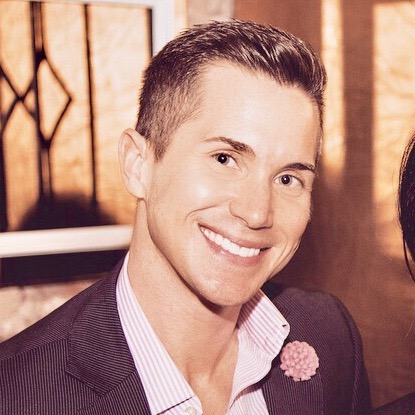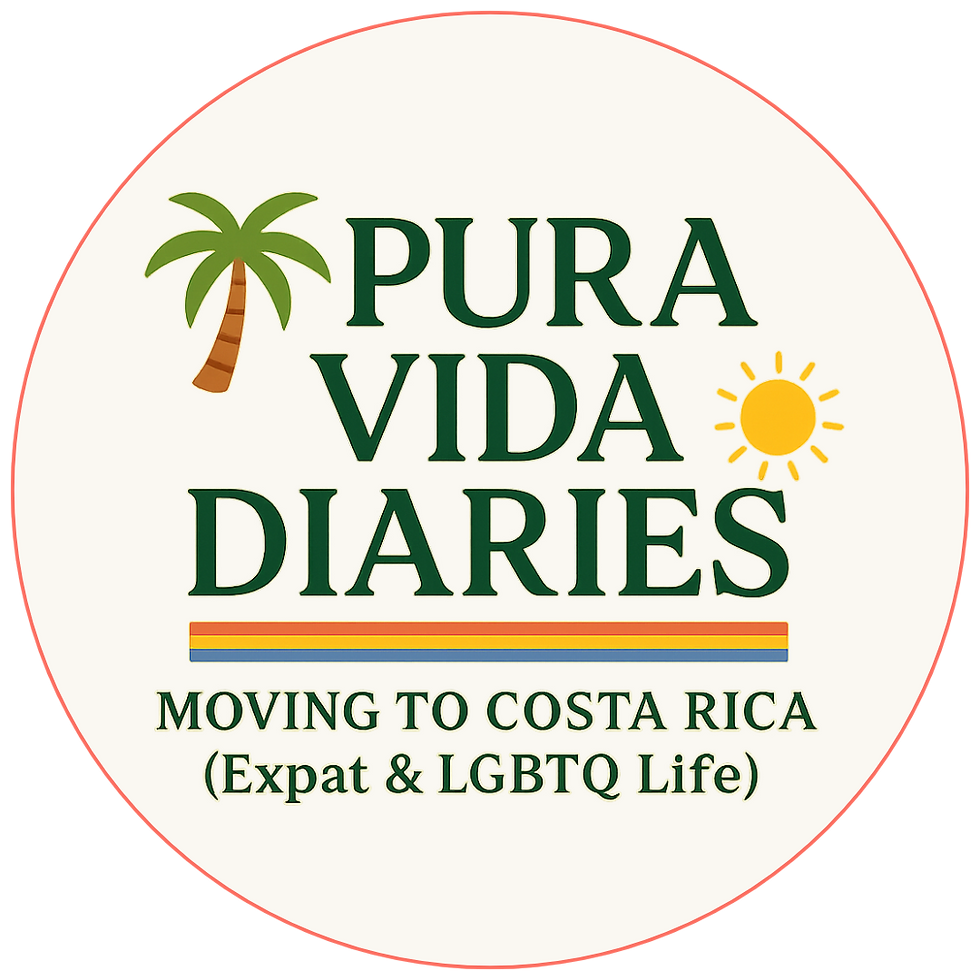LGBTQ Costa Rica: The Real Queer Guide to Paradise
- Waymon Hudson

- Nov 12, 2025
- 5 min read

You’ve seen the TikToks: rainbow sunsets, shirtless surf bros, drag brunches in the jungle.
But what’s it really like being LGBTQ in Costa Rica?
Here’s the truth from someone who’s actually living it: it’s not just safe, it’s soul-filling.
Sure, there are challenges, bureaucracy moves slower than a sloth in a hammock, but this little country has quietly become one of the most progressive, welcoming places in Latin America for queer people, trans folks, and everyone living between or beyond the binary.
1. LGBTQ Rights in Costa Rica: Not Just Tolerance — Progress

Costa Rica isn’t perfect (no country is), but it’s way ahead of the regional curve.
✅ Marriage Equality: Legal since 2020, the first in Central America.
✅ Adoption Rights: Equal for same-sex couples.
✅ Gender Identity: Trans citizens can legally change their name and gender marker on IDs.
✅ Anti-Discrimination Laws: Protect sexual orientation and gender identity in workplaces and public services.
✅ Police & Tourism Training: LGBTQ-sensitivity programs have been standard since 2018.
💬 Real talk: Paperwork can be slow, and some rural clerks may still clutch their pearls at a gender-marker change request, but you’ve got the law on your side.
2. For Trans, Non-Binary & Gender-Expansive Travelers

Costa Rica is increasingly visible for trans and gender-diverse people, especially in San José or tourist areas.
✨ Good to know:
Most airports, hotels, and tour operators are familiar with gender-diverse travelers.
Gender-neutral bathrooms (baños neutros) are everywhere, including appearing in public buildings and universities.
Hormone replacement therapy and affirming specialists are available in San José at private clinics and public hospitals (Caja system).
The process for changing your legal gender is free but bureaucratic, but bring patience and snacks.
🩵 Community tip: Join local Facebook groups like Transvida, Gender Freedom Costa Rica, LGBTQ Expats Costa Rica, or LGBTQ Rainbow Refuge Costa Rica before arrival. They’re goldmines for advice, resources, and friendship.
3. Where Queer Feels Like Home
Costa Rica’s expat LGBTQ community is thriving — artists, digital nomads, retirees, families, and so much more. Here are just a few highlights:
San José:
The capital hosts Marcha de la Diversidad (Pride) each June: huge, joyful, and political.
Also home to Queer nightlife of all kinds, inclusive healthcare, and many LGBTQ-owned business and services.

Manuel Antonio:
Basically the LGBTQ beach headquarters of Central America.
Expect rainbow flags, drag shows, and couples from all over the world.
They have a fuhn beach Pride event every year as well!
Puerto Viejo:
On the Caribbean coast — Afro-Caribbean, bohemian, and beautifully intersectional. Queer artists, vegan cafés, reggae beats.
Tamarindo & Nosara:
More chill surfer/remote-worker energy. The vibe is “flirt with everyone, label nothing.”
Dominical & Uvita:
The Southern Pacific Zone has a growing and active LGBTQ community, fun beach & surf vibe, health and wellness, good mix of expats and locals.
4. Cultural Realities: Pura Vida, Queer Edition

Costa Ricans (Ticos) are famously kind. The culture leans conservative in the older generation, but the Pura Vida mindset — “it’s all good” — genuinely applies.
Public affection: Usually fine in tourist areas and large cities; in small rural towns, some subtlety helps.
Religion: Catholic roots, but increasingly secular — and younger Ticos are loud allies.
Phrase to know: “Todo bien, mae.” Translation: “All good, dude.”
5. Healthcare & Mental Health Resources

Clinica Biblica and Hospital CIMA in San José both have LGBTQ-inclusive policies.
HuliHealth Platform: This online platform can be used to search for therapists who specialize in "Specialized care for Gay, Bisexual, and Transgender people through a human rights approach" in various locations across Costa Rica
Check with local LGBTQ organizations for support as well:
Transvida: An organization that advocates for the rights of transgender people, also provides support, health education, rapid HIV testing, and prevention support.
Cámara de Comercio Diversa de Costa Rica: The Costa Rica LGBTQ Chamber of Commerce.
Orgullo y diversidad Costa Rica: Costa Rica's PRIDE organization.
VIHDA-Costa Rica Fundación: A foundation focused on HIV and AIDS in Costa Rica.
Trans travelers can access hormones through pharmacies with local prescriptions, and queer-affirming sexual health clinics offer free HIV testing and PrEP.

6. LGBTQ Travel & Safety Tips
✅ Use WhatsApp for directions & communication — it’s universal here.
✅ Use Waze, not Google Maps. Your car and sanity will thank you.
✅ Learn basic Spanish; locals adore the effort.
✅ Pack sunscreen, bug spray, and your pride flag — you’ll use all three.
Final Takeaway: Pura Vida Means All of Us

Costa Rica isn’t a fantasy bubble — it’s a living, evolving paradise where queer people don’t just visit; they belong.
You’ll still roll your eyes at the paperwork and the slowness, but you’ll also dance at a beachside Pride party, laugh with new friends, and realize:
This is what freedom feels like.
Also check out the rest of the Pura Vida Diaries Blog Series:
Part 1: Moving to Costa Rica: Why I Chose Here Out of Anywhere in the World
Part 2: Thinking of Moving to Costa Rica? Cost of Living, Rent & Reality Check
Part 3: Residency in Costa Rica: How to Stay Legally (Without the Border-Run Headache)
Part 4: How to Be a Good Immigrant in Costa Rica (a.k.a. Don’t Be “That” Expat)
Part 6: Pets in Paradise: Bringing Your Dog or Cat to Costa Rica — and Why You Might Adopt One Here
Part 7: Culture Shock in Costa Rica: Why It’s the Best Thing That Ever Happened to Me (Pura Vida, Baby)
Part 9: Learning Spanish in Costa Rica: A Fun (and Honest) Guide for Expats Who Aren’t 22 Anymore
Part 10: Remote Work in Costa Rica: Jungle Wi-Fi, Time Zones, and the Digital Nomad Life
Basically? If you’ve ever Googled “Can I really move to Costa Rica?” …this series is your sign.
FAQ: LGBTQ Costa Rica
Is Costa Rica safe for LGBTQ travelers?
Yes. It’s one of the safest, most inclusive countries in Latin America, with legal protections and a visible queer community.
Can same-sex couples hold hands or show affection?
Yes in cities and beach towns. In small rural areas, discretion is sometimes appreciated.
Is it safe for trans travelers?
Yes. While there can be some outdated attitudes in rural zones, Costa Rica’s legal framework and growing visibility make it trans-friendly overall.
Are there LGBTQ events or Pride celebrations?
Yes! The biggest is San José Pride in June, with regional events in Manuel Antonio and Puerto Viejo.
Can LGBTQ expats work or get residency?
Yes. Multiple visa options exist for retirees, remote workers, and business owners — all equally available to queer applicants.




Comments